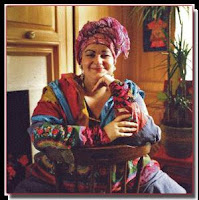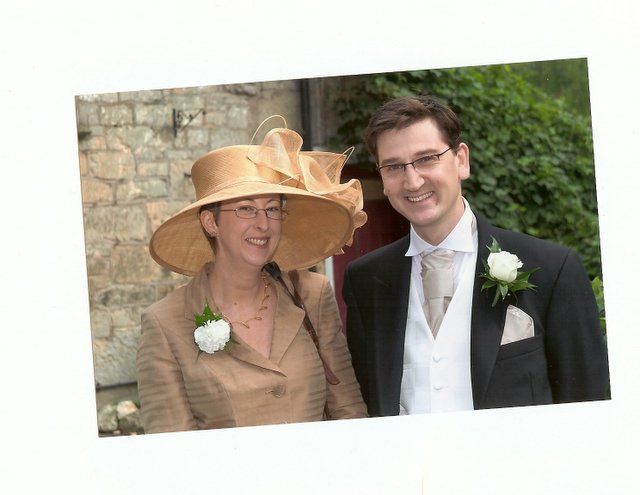My Hero
I don't have many heroes because most people in the public eye are as flawed as the rest of us, or more so. I suppose Clive Stafford-Smith comes close or Hester Stanhope, but I think Camila Batmanghelidjh probably encapsulates who I would like to be if I were a better person.
Brought up in an amazingly wealthy Iranian family, Ms Batmanghelidjh and her siblings were at school in England when the revolution happened and they lost touch with their parents. With the help of her school she managed to get asylum and then worked in nurseries to fund her way through university. For some reason she'd always wanted to work with disadvantaged children and did that as a psychotherapist, first working with the children the wealthy and then working with the sort of kids who get referred to Social Services.
In 1996 Ms Batmanghelidjh set up Kids Company to help the children we ignore until they get into the headlines of tabloid newspapers as the victims, or perpetrators, of violence. Around the same time one prominent comedian was developing his catch-phrase of, "Tough on crime, tough on the causes of crime" and, whilst I remember him eventually slapping an asbo on anyone who couldn't run away fast enough, I recall him doing precious little about the last part of that phrase. Disadvantage (not just financial poverty, but poverty of expectation, a lack of family support, poverty of ambition) and the other myriad causes of crime and social disaffection, was not tackled on a national level. Throughout the period since 1996 social inequality got worse, with the richest and poorest moving further apart (IFS Report), whilst social mobility has also declined (Sutton Trust/Guardian) - so if you're born on a sink estate in Doncaster, you're more likely to remain there.
So, thank goodness someone decided to do what she could to help these children. When the crimes they commit reach the headlines we are rightly disgusted, but the backgrounds they come from should really turn our stomachs. She works with children who have been the subject of abuse and/or neglect since infancy, whose parents often have their own mental or substance dependency problems and cannot/will not care for them so that the parent-child relationship is either reversed, or the child goes 'feral'. One story: "She tells me of a boy who came to her aged 12. He had already stabbed his stepfather for attacking his mother. Both were crack addicts and the boy, always fearful, slept with knives under his pillow. He was a terrifying, angry child, she recalls. But she persisted: “I’d follow him around and sit next to him and say ‘You’re too cute to frighten me!’” Gradually his story unfolded, the beatings, neglect, the gun put in his mouth by a junkie. But what kept the boy coming to Kids Co was that it understood his mind, his urge to switch from victim of violence to perpetrator, how only torturing and persecuting others gave him mental relief." (Timesonline). Now aged 22 the young man is at college, studying for a professional qualification.
This story is by far not the worst: a quick Google will bring up the life-histories of other children that she's told to various newspapers. Is it any wonder that some of these children will turn to abusing others to re-capture a sense of power or respect that is missing from their lives; or will join a gang because it gives them a surrogate family that's probably less abusive than their own? Many years ago I read one report in which Ms Batmanghelidjh estimated that up to 40% of the children on some London housing estates were 'lost' - not in school, not contacted by Social Services, no GP, left to fend for themselves. What happens to these children as adults? What sort of families and relationships do they go on to have? Of course with many of them we know that they end up in the criminal justice system, or their children end up in care, but what about the rest? What effects is the abuse they suffered in childhood having on the next generation and on wider society?
The great thing is that many of the children themselves self-refer to Kids Company, or bring in friends that they think are in trouble. They realise that their lives shouldn't be like that and they find help. Of these, 96% return to education or employment and there's an 88% reduction in crime (Independent) - back to that phrase of "tough on the causes of crime" again. And that's why it's important that we don't leave the most disadvantaged in society to fend for themselves, because the effects end up permeating through society as a whole: your car gets broken into to support someone's drug habit; you're frightened to walk down a street because of the gang on the corner; crime ends up being the only job for the kid who can't read or write (illiteracy rates of those who end up in prison have changed little since the turn of the 19th century). With cuts in public spending which are going to hit services to the disadvantaged most, sadly, people like Camila Batmanghelidjh will become more important. Isn't it sad that in the 4th richest country on the planet we still have a level of people whose lives are so blighted, with a blight that infects future generations?
If I were a better, braver, more patient person (or liked children) I'd volunteer for such work myself, but I'll have to content myself with making donations to charity and looking with awe at one of my heroes. I do also envy her dress sense, 'larger than life' character and the entrepreneurial spirit that enabled her to establish her various ventures. After all, (to misquote Caitlin Moran) someone with 'Batman' in her name can probably do just about anything!
Labels: Camila Batmanghelidjh, charity, children, crime, disadvantage, heroes, politics, poverty, society



0 Comments:
Post a Comment
<< Home